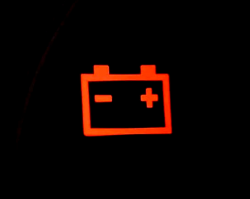
— A Mercedes-Benz battery replacement class action lawsuit alleges numerous models have defective electrical systems that drain the batteries which cause a circle of battery replacements.
Those electrical defects have allegedly existed since at least 2004 and cause owners to buy replacement batteries which also allegedly drain.
According to the Mercedes battery drain class action, the following models contain defects that cause battery failures.
- 2004-2022 Mercedes-Benz S-Class
- 2004-2022 Mercedes-Benz C-Class
- 2004-2022 Mercedes-Benz A-Class
- 2004-2022 Mercedes-Benz CLA-Class
- 2004-2022 Mercedes-Benz CLS-Class
- 2004-2022 Mercedes-Benz G-Class
- 2004-2022 Mercedes-Benz GLA-Class
- 2004-2022 Mercedes-Benz GLK-Class
- 2004-2022 Mercedes-Benz GLC-Class
- 2004-2022 Mercedes-Benz ML-Class
- 2004-2022 Mercedes-Benz GLE-Class
- 2004-2022 Mercedes-Benz GL-Class
- 2004-2022 Mercedes-Benz GLS-Class
- 2004-2022 Mercedes-Benz E-Class
The Mercedes battery replacement lawsuit includes:
"All persons who purchased or leased a Mercedes Vehicle containing the Battery Defect rendering them subject to any remedial- or counter-measure, including but not limited to the following TSBs:"
- LI54.15-P-070802
- LI42.47-P-069817
- LI54.10-P-066344
- LI82.85-P-066086
- LI82-95-P-056655
- LI27.00-P-072627
- LI54.10-P-064762
- LI54.10-P-066942
- LI54.10-P-071596
- LI54.10-P-069698
New Jersey plaintiff Amir Crawford purchased a 2019 Mercedes-Benz CLS 450 Coupe in 2019. The plaintiff says the Mercedes battery has drained many times and replaced twice.
The 12-volt battery drain leaves the vehicle without the ability to start and without electrical components.
But the class action lawsuit alleges recent models with 48-volt batteries also suffer from battery drain. The plaintiff contends the 48V battery is supposed to help with fuel economy, but a drained 48-volt battery can allegedly cause the engine to overheat.
The Mercedes battery drain class action focuses heavily on technical service bulletins issued by Mercedes to dealerships. The lawsuit alleges this indicates the automaker has long known about the battery drain problem.
Mercedes Battery Replacement Technical Service Bulletins
The class action references the following TSBs.
— TSB LI82.95-P-056655, issued July 12, 2013, and entitled “Battery drain bus keepawake detected - mbrace control unit causes bus keepawake.” The bulletin says, “Customer experiences low battery conditions, resulting in jump starts, and eventually requiring battery replacement.”
It advises the “PASS (mbrace) is programmed to update its Preferred Roaming List (PRL) every 90 days,” and in some cases “will start attempting to update, even though no network is detected,” which will ultimately “keep the CAN Bus awake, and . . . drain the battery.”
— TSB LI54.10-P-066344, issued October 27, 2017, and entitled “Vehicle Does Not Start,Battery Discharged.” The TSB says the onboard electrical system can continue to operate when the engine is off, draining the battery, in which case the engine light will display the message “Interior CAN awake unusually long.”
— TSB LI82.85-P-066086, issued March 13, 2017, and entitled, “Discharge Starter Battery Because Of Excessively High Quiescent Current.”
The TSB says, “the HERMES communication module (N112/9) may keep the CAN awake through the Bluetooth connection to the head unit,” which “can discharge the starter battery” and result in the “[e]ngine start not [being] possible because battery voltage too low.”
— TSB LI54.10-P-066942, issued May 10, 2018, and entitled “Discharged battery; vehicle does not start!! Model series 177 only!!” The bulletin requests to “create a PTSS case for all 177 vehicles found with a discharged battery and no start condition,” and lists the cause of the failure as “under analysis.”
— TSB LI54.10-P-071596, issued August 10, 2020, and entitled “Vehicle does not start / Vehicle cannot be unlocked - starter battery may be discharged.”
The TSB describes how a Mercedes vehicle cannot start or be unlocked, while displaying the message “Battery - Start Engine - see Operator's Manual.” It describes an analysis showing event code U116000, detecting “a bus keepawake control unit. . .in the electronic ignition switch control unit.”
— TSB LI54.10-P-064762, issued March 16, 2021, and entitled “Battery Discharged, Vehicle Does Not Start - Event Code U116000 A Bus Keepawake Event Has Been Detected Is Logged In The Quick Test.”
Mercedes said the “[b]attery discharged, vehicle does not start,” while displaying “event code U116000 A bus keepawake event has been detected.” This may be caused by the electronic ignition lock control unit crashing, the Keyless-Go control unit crashing, the or the electronic ignition lock unit causing a “bus keepawake event.”
— TSB LI54.10-P-069698, issued April 21, 2021, and entitled, “Functional impairment of 48V on-board electrical system,” and describes a “No start; Yellow or red instrument cluster message for 48 V on-board electrical system battery (G1/3); Limp home mode, overheating, A/C not blowing cold, or loss of acceleration.”
The Mercedes TSB says “[v]arious causes are possible.”
The battery drain class action lawsuit asserts the automaker fails to admit flaws in the electrical systems cause the batteries to drain. Customers are then forced to pay their own money for repairs and replacements.
Mercedes-Benz has allegedly refused to properly repair the battery drain problem and won't compensate owners for expenses. Mercedes continues to sell the vehicles because the automaker allegedly conceals the battery and electrical system defects.
The Mercedes battery replacement class action lawsuit was filed in the U.S. District Court for the District of New Jersey: Amir Crawford v. Mercedes-Benz USA, LLC, et al.
The plaintiff is represented by Aylstock, Witkin, Kreis & Overholtz, PLLC.




